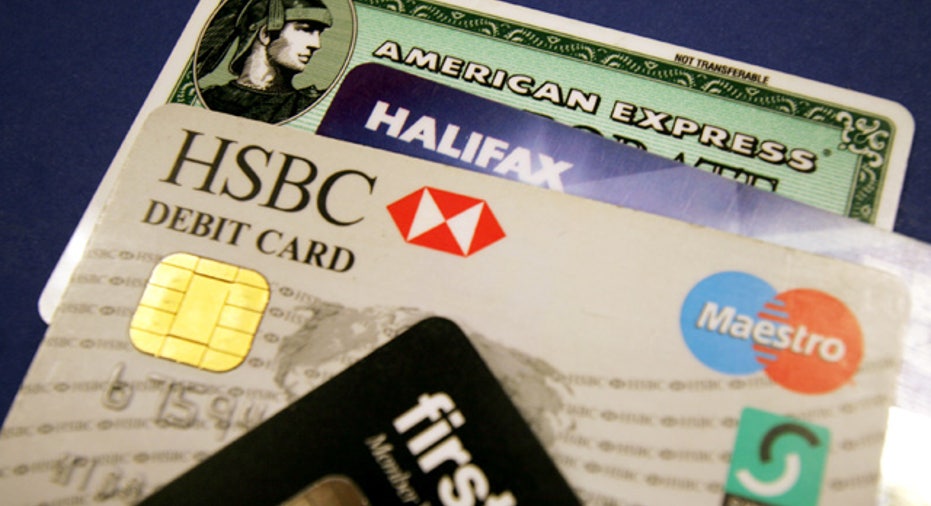MCC Codes Unveil Consumer Shopping Habits

Want to get the lowdown on someone's interests and priorities? Look no further than their credit card, thanks to a tracking system that stores data on where credit card customers use their cards.
"The Merchant Category Code (MCC) is a four-digit number assigned to describe a merchant's primary business," says Ted Carr, a spokesman for Visa. "In addition, some merchant category codes identify a specific merchant or type of transaction," he adds.
When a cardholder makes a purchase, the MCC for that business is stored. Card issuers track that information, so if MCC 5310 comes up, for example, they know you shopped in a discount store. If MCC 4722 shows up, they know you've spent money on travel. (Here's a full list of MCC codes).
The reasons and uses for MCC codes vary. Here's a rundown of how they are used -- and how they're not.
MCCs do help prevent fraud. MCC codes allow card issues to flag purchases that are unusual to the cardholder, says Nessa Feddis, vice president and senior counsel for the American Bankers Association. For example, if a thief uses your card in a jewelry store or casino and this goes against your normal buying behavior, a red flag might be raised. The MCCs also give issuers insight into the risk level of particular types of merchants, Carr says. For example, a lot of charge-backs to a particular merchant category suggests that consumers tend to leave unhappy with the product or service.
MCCs are used to market new products to consumers. By tracking MCCs, card issuers know a lot about their customers' spending habits. As a result, they have insight into products and services their customers might buy. "It's a way to understand their customers and respond in a competitive way to their customers' spending," says Feddis. "If you're a card issuer that has a special partnership with an airline, and you see that one of your customers has a lot of airline purchases, you might then offer that card to that customer."
Such a practice is becoming more common, says Anil Batra, vice president of business consulting for iJento, a multi-channel analytics company. "Most businesses in some way, shape or form are collecting data," Batra says. With that data, companies engage in what's known as behavioral marketing. By building user profiles that track such information as what consumers are buying and what Web sites they are browsing, marketers can better target their products and services.
MCCs are shared with marketing partners. Your card issuer might not be the only one that knows you have an affinity for motorcycles. Card issuers sometimes share information about customers with their partners, who can then tailor their marketing pitches to you. The problem with that is companies don't have to disclose they're sharing the data with partners they have joint marketing arrangements with, says Paul Stephens, director of Policy and Advocacy with the Privacy Rights Clearinghouse. When it comes to keeping your MCC codes out of the hands of partner companies, "there are limitations on the extent to which you can opt out," Stephens says.
On the other hand, companies may offer bargains on items you're likely to buy. But there's also the chance that the opposite could happen, Stephens says. "If a company sees that you make many purchases [of a particular type], you may not be offered the best prices. They may offer good prices to someone who is not a regular customer to induce them to make a purchase."
MCCs can be subpoenaed. If a court requests your credit card records, your issuer must comply, Feddis says. In criminal and civil cases, MCC codes can paint a picture of where a litigant spent his or her money -- something that can be relevant to proving a case.
MCCs keep businesses, consumers accountable. Businesses must report certain types of purchases to the IRS. MCC codes can be used to determine whether charges made on a credit card are among them. With health care flexible spending accounts that restrict spending to pharmacies and certain types of merchants, the codes can also be used to ensure that purchases aren't made at other types of businesses.
MCCs don't impact your credit score. Contrary to popular belief, "nobody's using MCC codes to determine, 'I'm going to lower someone's limit or increase their interest rate,'" says Feddis. That's not to say that card issuers never did. In 2009, it came to light that American Express had used customers' shopping patterns as a criterion for credit line reductions. After public outcry, the company announced that it would end the practice. "It was very short-lived, and it was one issuer and that was the end of that," Feddis says.
For consumers who are concerned about how information about merchant category codes are being used, options are limited. To keep the number of companies with access to your shopping habits down, opt out of allowing card issuers to freely share your information, Stephens says. The only other option: Use cash.
"Cash is obviously the best privacy protector, but you have to balance privacy against convenience to determine which is more important for you," says Stephens.



















